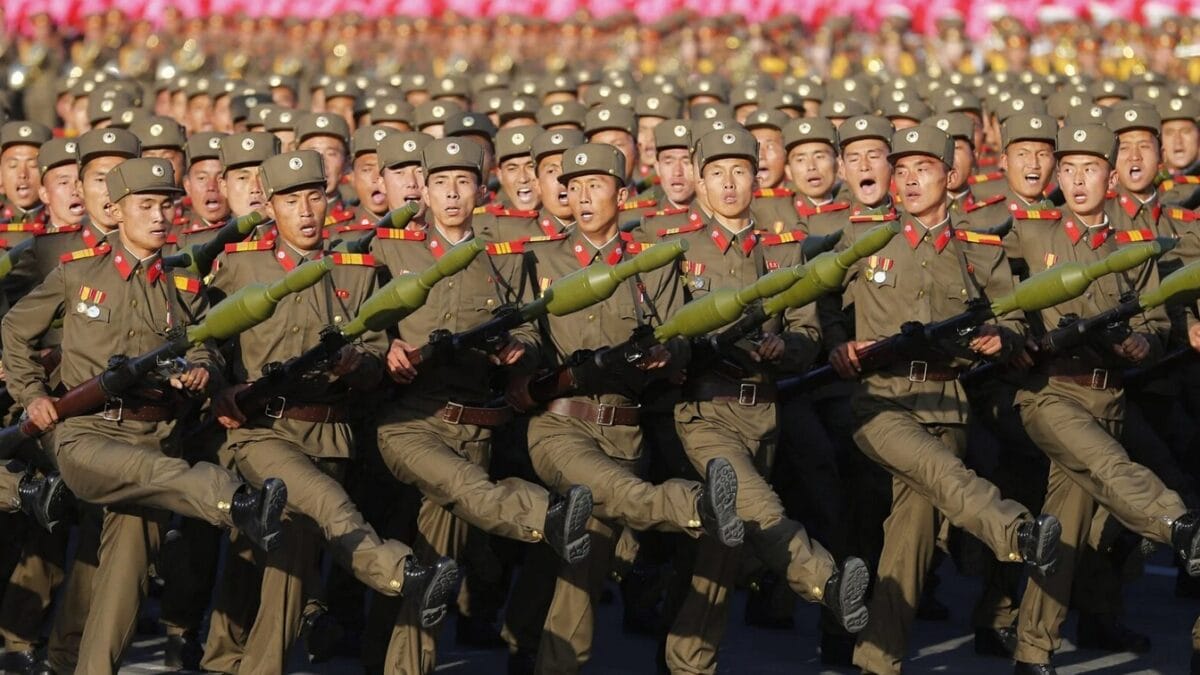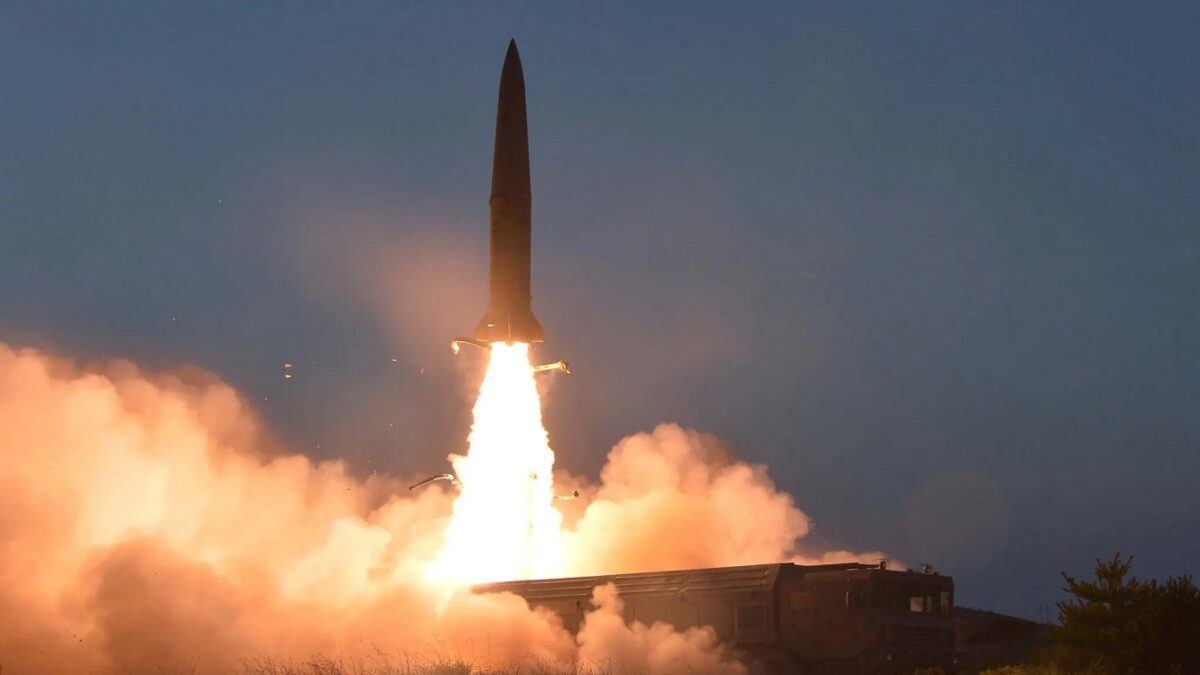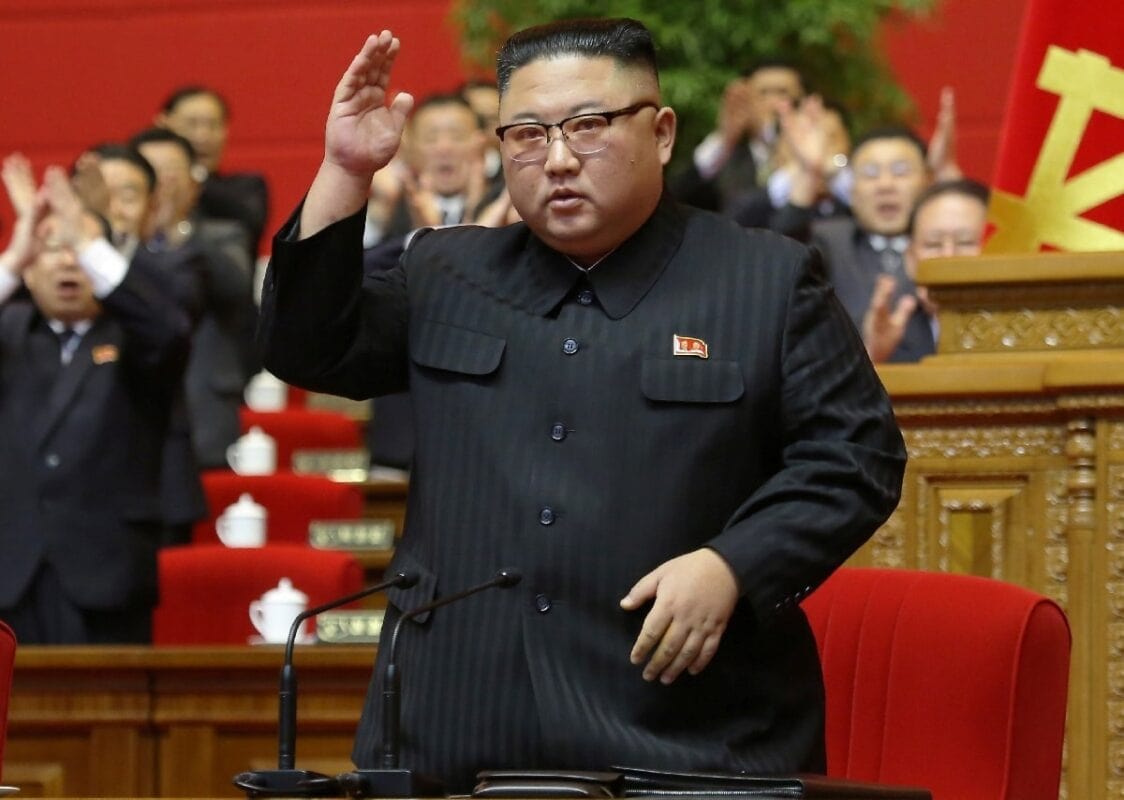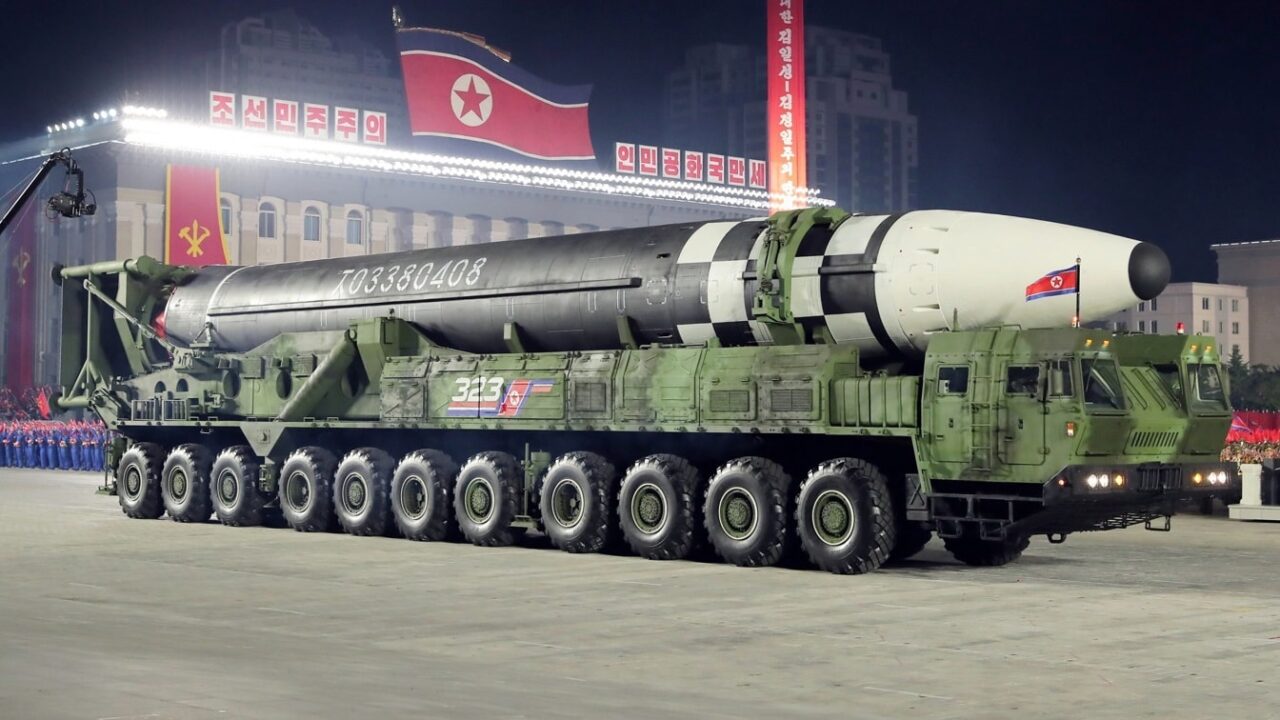Since 2017, I have been asked one question repeatedly when it comes to North Korea: when will they test another nuclear weapon?
It’s certainly a fair and essential question to ask.
North Korea has been quiet on the atomic testing front since September 2017, when they tested their last nuclear weapon. Since then, they have claimed to have closed their nuclear testing site and pledged to no longer need to test nuclear bombs – a pledge they have rescinded on several different occasions.
Why the Kim family might want to start testing again seems straightforward, they would love to ensure their goal of deployable tactical nuclear weapons, meant for regional use on the Korean Peninsula, are of a working design. Or, perhaps they want to test further their supposed hydrogen bomb that could be put on massive ICBMs to deter the United States and its allies of something thinking about regime change.
With all of that laid out as context, I reached out to several top experts I have known for years to get a sense of what they are thinking and if we could indeed get a North Korean nuclear test this year. Here is the expert analysis I gathered, and I suspect the first response will be the most controversial of all:
Dr. Salvator Babones, University of Sydney: North Korea does not have nuclear weapons, but that doesn’t mean it won’t test them.
A strong case can be made that North Korea’s entire nuclear program has been nothing but a nuclear Potemkin village.
Certainly, North Korea possesses medium-range missile technology and enough fissile material to create a dangerous number of dirty bombs. But every North Korean nuclear test, from the first fizzle in 2006 to the supposed H-bomb of 2017, occurred under suspicious circumstances and generated contradictory data.
The narrative that North Korea is a real nuclear weapons state serves the interests of everyone involved in North Korean affairs, from the think tank analysts to the Western intelligence agencies to the North Koreans themselves. It is, however, unconvincing when examined skeptically by an outside observer with no horse in the race.
Will Kim Jong-un “test” a nuclear device, in order to challenge the Biden administration, assert his independence from China, and make himself relevant again?
He might well do so. He will have more latitude to make a ploy for the world’s attention once China’s Xi Jinping has re-cemented his place at the top of China’s power hierarchy. Any decision to stage a seventh test (with an emphasis on the word “stage”) will depend on the leadership situations in China, the United States, and North Korea at the time. Ironically, it seems likely that China’s situation will be the most stable of the three, and if Xi decides to use his renewed political mandate to assert his power abroad, a North Korean nuclear test might be targeted as much at Beijing as at Washington or Seoul.
Whoever the political target may be, skeptical observers should ask: qui bono? If the answer is “nearly everyone involved,” they should be skeptical indeed.

North Korean Special-Operations Forces. Image Credit: Creative Commons.
Bruce Bennett, RAND Corporation: “North Korea usually commits its provocations like nuclear weapon tests to achieve both political and military objectives. On the political side, North Korea probably wants to attract media attention, demonstrate regime empowerment (for internal purposes), and coerce the ROK/US into offering concessions, among other things. The North may be waiting for major regime events to achieve its political purposes. For example, the North Korean National Day—the day when the North commemorates the founding of its country, is September 9. The last two North Korean nuclear weapon tests were both done in early September, associated with this date.
But the North’s military objectives may be dominating.
Many people argue that the North’s 7th test will be of a tactical nuclear weapon. That may be true, but the North’s first 5 tests were all of weapons that had a tactical nuclear weapon yield of less that 20 Kt. So another North Korean test with modest explosive power would be nothing new. The North may instead be hoping to set off a nuclear weapon with a much bigger yield than even its 6th nuclear weapon test—perhaps 500 Kt or 1 Mt. If so, Kim’s scientists may be telling him that they are not sure they can get that result yet. Kim won’t want a nuclear test that fails to exceed the yield of his 6th test significantly if this is the case, so he may be waiting for the scientists to tell him that they have mastered the needed design. That might require more time than being ready by the end of the year.”
Dr. James Jay Carafano, Vice President at the Heritage Foundation: “There is no reason why they can’t. They don’t like the South Korean regime which has taken a harder line on dealing with the North. At the same time, the Biden administration has shown little interest in engaging. North Korea doesn’t like to be pressed or ignored. So sure, a test could definitively be in the works. Expect Biden in response to finger wave and little more.”
Ted Galen Carpenter, CATO Institute: “It is now more likely than not that North Korea will conduct a nuclear test before the end of 2022. Even if it does not occur that soon, a test sometime in 2023 is almost certain. Washington’s sterile policy toward Pyongyang bears a great share of the blame.
During Donald Trump’s administration, it appeared that the United States and North Korea were making progress toward establishing something akin to a normal relationship. As part of that rapprochement, Pyongyang embraced a self-imposed moratorium on both missile tests and nuclear tests. Unfortunately, the Trump administration abandoned its promising approach and reverted to the long-standing U.S. policy of demanding that North Korea commit to full de-nuclearization before meaningful negotiations can take place on other issues. Washington’s demand guaranteed a perpetual impasse—even as North Korea expanded its nuclear arsenal and missile fleet.
Joe Biden’s administration has kept that futile policy on autopilot. However, Pyongyang’s growing impatience at the lack of progress toward normalizing relations was becoming apparent even during the final year of Trump’s presidency, and it intensified during the Biden years. The moratorium on missile tests has already largely unraveled. The resumption of tests confined to short-range missiles in 2021 warned tone-deaf Biden administration officials. When that signal went unheeded, tests of longer-range missiles followed.
The self-imposed moratorium on nuclear tests is the only component of Pyongyang’s restraint that remains in place. However, unless the Biden administration offers some meaningful concessions, it is just a matter of time until Kim Jong-un’s government resumes nuclear tests.
Indeed, that time may soon be measured in weeks rather than months.”
Gordon G. Chang, Author of the Book the Coming Collapse of China: “In North Korea’s one-man system, Kim Jong Un has the final say when the regime conducts the next test of a nuclear device.
Yet Kim is not entirely free to make the decision. China, for instance, could call and demand a test occur—or not occur.
Does China really have that clout in Pyongyang? Yes. When the Chinese make demands, Kim Jong Un complies. After all, in 2018 and 2019 he traveled to China four times without a return visit by Chinese ruler Xi Jinping. During the last of these trips, in January 2019, Kim spent his birthday in the Chinese capital.
Xi did not step foot in the Democratic People’s Republic of Korea until June 2019, the first—and so far only—time he has done so.
Kim will continue to brag about juche—self-reliance—but the North Korean is, in reality, a vassal.
Xi could use a foreign crisis right about now because he is being blamed for, among other things, a contracting economy, plunging property prices, and uncontrollable COVID-19 outbreaks. Being seen as solving the next Korean crisis would go a long way to bolstering his image at home.
It appears Xi will meet President Joe Biden on the sidelines of the G20 meeting in Bali in mid-November. My guess: Kim will pull the trigger on the eve of the meeting and Xi, in return for significant concessions from Biden, will promise the American leader to rein in Kim. This stratagem worked with George W. Bush and during the first term of the “Obama-Biden administration,” so the Chinese undoubtedly believe it will work now.”
Malcolm Davis, Senior Analyst, Australian Strategic Policy Institute: “The resumption of US-South Korean exercises later this month is likely to coincide with a growing risk that North Korea could proceed with a new round of nuclear testing. In particular, Pyongyang looks set to deploy tactical nuclear weapons on short-range missiles that are designed to offer the North a means to both coerce and deter. Tactical nuclear weapons aimed at South Korea could be used coercively to force South Korea to make concessions in a crisis, or offset the ROK’s conventional superiority, while strategic nuclear weapons on ICBMs and IRBMs could be employed to deter US responses if, in a crisis, Pyongyang were to use a tactical nuclear weapon against the south. Pyongyang may be taking a leaf out of Russia’s playbook with its own ‘escalate to de-escalate doctrine, to which tactical nuclear weapons contribute a key role.
Those tactical nuclear weapons will likely need to be tested to make sure they are effective, especially in generating very low yields. Pyongyang seems intent on restoring its principle nuclear test site at Punggye-ri even as it continues to test a range of battlefield rockets and short-range ballistic missiles that would be suited to deliver low-yield battlefield nuclear weapons.
Another key issue regarding the deployment of tactical nuclear weapons by North Korea is whether Kim Jong Un would be willing to devolve nuclear launch authority for such weapons to lower levels of command within the DPRK Army, to mitigate the risks posed by possible South Korean or US non-nuclear decapitation strikes.
Overall, the potential risk of a new North Korean nuclear test, potentially this year, combined with apparent moves by the north to develop and deploy tactical nuclear weapons, and uncertainty over nuclear command and control arrangements will make future crises on the peninsula a more perilous prospect. In a major crisis in the north, whether positive control of tactical nuclear forces is maintained adds to uncertainty and risk of inadvertent escalation.
How the Biden Administration, and the government of South Korean President Yoon Suk-yeol would respond to a new North Korean nuclear test remains uncertain. There seems little prospect for the ‘comprehensive and irreversible denuclearisation’ of North Korea that has been an objective of both the former Trump Administration, and remains the objective of the current Biden Administration. New North Korean nuclear tests, combined with deployment of tactical nuclear weapons would force the Biden Administration to take visible steps to reinforce extended nuclear deterrence security guarantees for South Korea, and also Japan, or potentially see the South Koreans take their own steps to acquire an independent deterrent. This prospect, when seen in a broader global context of growing nuclear risks emerging from a revanchist Russia, a rapid nuclear expansion by China, and the prospect of failure in negotiations to restore the Joint Comprehensive Plan of Action with Iran, suggest a new North Korean nuclear test could dramatically raise the pressure on non-proliferation regimes, and demand a more robust deterrence posture by the US.”
Daniel L. Davis, Senior Fellow for Defense Priorities and former LT. Colonel, U.S. Army, and Combat Veteran – “I assess there is a medium-high chance that North Korea conducts another underground test of a nuclear warhead before the end of the year. It’s not a certainty but is in the ‘likely’ category.
Though many suggest the chances are high or even certain, I am less convinced. The reason: North Korea has a technical requirement to physically test a nuclear weapon to validate the development and advancement of its program. I believe that they will conduct the test when they have made all scientific and technical preparations and when their systems and testing facilities are ready. That could come anytime, but it may also be delayed into 2023.
The driver, in my view, will not be any elevation in the political, diplomatic, or national security environment, and thus I do not hold that the recent rise in heated rhetoric between the North and South presages a nuclear test, as though the test would be a response signal. Rather, I believe that Pyongyang’s fiery rhetoric against Washington and Seoul is in keeping with historical norms while the nuclear test will be conducted when Kim Jong Un’s objective to elevate the capacity and reliability of his nuclear force can be met, regardless of the prevailing political and military situation.”

North Korea Ballistic Missile Test. Image Credit: North Korean State Media.
Wallace Gregson, former Assistant Secretary of Defense, Obama Administration: Predicting Kim’s behavior is a sucker’s game. Predicting any autocratic ruler’s behavior is largely guesswork. Recall the sober analysts, both here and in Ukraine, predicting that Putin would not invade his neighbor.
Nevertheless, rising to this “mission impossible,” I put the chances of another North Korean nuclear test before our new year somewhere between 60 and 75%.
I base my prediction on four factors.
The first is the nature of autocratic regimes with a long-serving ruler. The framework of their logic bears very little relationship to ours. They have internal pressures and threats, largely arising from purges and “disappearances” engineered. Real or imagined is immaterial, as each incident serves to intimidate others. Saying that something “would not make sense” only means it does not make sense to us.
The second is the value of a provocative and outrageous diversion when domestic conditions are pressing. The Covid epidemic in North Korea, reportedly vanquished with fewer casualties than every other nation, is a serious challenge. There are others.
The third is a perception of adversary weakness or distraction. China’s coercion of Taiwan serves that purpose.
Fourth is “use it or lose it.” Increasing our capabilities can provide that condition.”
Robert Manning, Senior Fellow at the Atlantic Council: “I would put the odds at 60-40 that Kim will conduct a 7th nuclear test in 2022. From overhead satellite observation, we know that they completed preparations for a text earlier this year.
The more intriguing question is why they have not tested?
I can’t produce the evidence, but I’m guessing China is a major reason. A North Korean nuclear test would likely put Xi in a difficult position. Where China roundly condemned Kim’s last nuclear test, cooperating in applying (and for a time, mostly enforcing) UNSC sanctions, I thing that given the collapsing state of US-China relations, it would become another test of US-China relations. My bet is that Xi would likely not cooperate and back UN sanctions. Chinese nationalists would blame the US “hostile policy.”
And the event would mark another downward turn in US-China ties. I have to wonder if there is any correlation between the uptick in Chinese oil, food and medical goods to Pyongyang and Kim’s restraint on nuclear testing. At the end of the day, I suspect if Kim feels he needs to test to perfect a warhead for an SLBM, cruise missile or tactical nuke, he will wait for some event, such as the current US-ROK Ulchi Focus military exercise, and use that to shift blame.”
David Maxwell, Senior Fellow for FDD: “Yes, it is likely that the Kim family regime will test a nuclear weapon because it supports its three-pronged strategy of political warfare, blackmail diplomacy, and advanced warfighting capabilities. All three contribute to the strategic objective of dominating the peninsula under the Guerilla Dynasty and Gulag State.

Image: Creative Commons.
Testing a weapon provides a provocation that increases threats and tension to coerce political and economic concessions. At the same time, it advances its nuclear capabilities, which will be used when the north attacks the South. The timing will depend on when Kim thinks he can achieve the optimal effects.”
Expert Biography: Harry J. Kazianis (@Grecianformula) serves as President and CEO of Rogue States Project, a bipartisan national security think tank. He has held senior positions at the Center for the National Interest, the Heritage Foundation, the Potomac Foundation, and many other think tanks and academic institutions focused on defense issues. His ideas have been published in the New York Times, Washington Post, Wall Street Journal, Newsweek, CNN, CNBC, and many other outlets across the political spectrum. He holds a graduate degree focusing on International Relations from Harvard University and is the author of the book The Tao of A2/AD, a study of Chinese military modernization.
Editor’s Note: This piece has been updated to include more expert analysis from Ted Galen Carpenter, Bruce Bennett from RAND, Wallace Gregson, and Gordon Chang.
Additional Editor’s Note: We updated this piece on 8/23/2022 to include a submission by expert Malcolm Davis.

